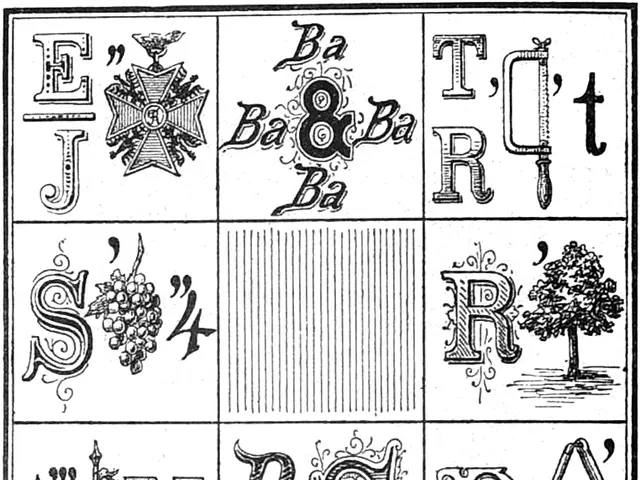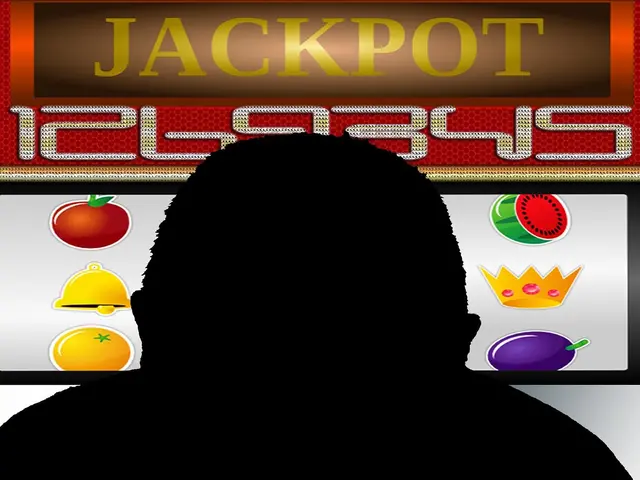US Impact on Slot Machines: A Journey from Fey's Liberties to the Modern-day Digital Era
In the heart of San Francisco, a mechanic named Charles August Fey revolutionised the gaming world in 1894 with the invention of the first modern slot machine. Known as the Liberty Bell, this three-reeled marvel featured symbols such as horseshoes, bells, and playing card suits, and was the first to offer automatic cash payouts when specific symbol combinations aligned[1][2].
Initially, slot machines were mechanical, operated by a simple pull of a handle. Designs were straightforward, with single pay lines and limited symbols, often influenced by popular imagery of the time. To bypass gambling restrictions, manufacturers even created machines that dispensed drinks or cigars instead of cash[1][2].
The iconic slot symbols evolved due to both player appeal and regulatory environments. Card suits were common due to their familiarity, but the transition to fruit symbols (such as cherries and lemons) was a response to the need to bypass gambling laws by framing payouts as fruit-flavoured gum prizes, a tradition that continues to this day[2]. The term "jackpot" was coined around 1916 by the Mills Novelty Company, referring to a top prize that dispensed all coins in the machine upon hitting certain winning combinations[1].
The 1990s marked another shift with the introduction of online casinos. This transition to digital platforms made slot games more accessible and varied, with the emergence of features like multiple pay lines, bonus rounds, and interactive elements that greatly enhanced player engagement.
Modern jackpot slots today often include progressive jackpots that accumulate across thousands of machines and players worldwide, sometimes reaching payouts in the millions, a scale impossible in mechanical machines. These digital dynamos also boast sophisticated graphics, animations, and bonus mechanics that cater to diverse player preferences, representing a fusion of game design, storytelling, and gambling tradition evolved from their mechanical origins[2].
The digital slot game market is expanding due to the widespread use of mobile devices, connecting people from different locations and offering a wide choice of new and innovative jackpot slots. Social media influencers have also emerged in the field, creating humorous and informative content about slot games.
As we look to the future, the US's influence on slot games is likely to continue growing with the advent of technologies like virtual reality and AR. The average Gen Z individual spends 11 hours daily immersed in online environments, reshaping digital interactions expectations. The gambling industry has adapted to these expectations, making online slots more like video games, immersing players in a world of chance and excitement.
References: [1] https://www.history.com/news/slot-machines-history [2] https://www.britannica.com/topic/slot-machine [3] https://www.gambling.com/beginner-guides/history-of-slots/
- As the gambling industry progresses, community news often features stories about the evolving culture of slot games, including the emergence of new events and personalities associated with casino-games, such as casino-culture influencers on social media.
- With the rise in popularity of online casinos, community news also covers environmental concerns related to the increased energy consumption of computers and mobile devices used for casino-and-gambling purposes.
- In the realm of entertainment, movie or documentary events may be held to celebrate the history and evolution of casino-games, such as the invention of the first modern slot machine by Charles August Fey in 1894.
- To cater to a broader audience and offer an engaging experience, modern slot games feature a wide range of themes, from classic casino-personalities to environmentally themed events, introducing elements like progressive jackpots and animated graphics to attract both casual gamers and devoted slot enthusiasts.








